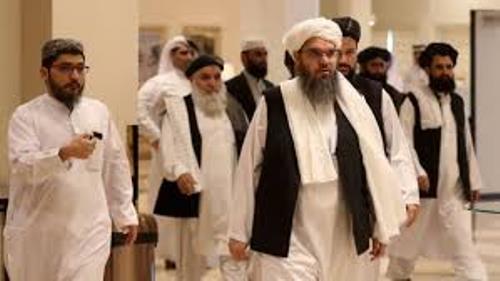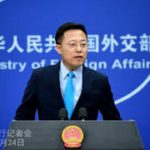In 1999, I traveled to Afghanistan when the Taliban controlled the country.
Swathed in shawls, exiting my taxi only when sneaking into buildings, I visited secret girls’ schools in private apartments, where 10-year-olds braved beatings to learn how to read. I interviewed former female university professors who, under the Taliban, could rarely leave their homes, and then only when shrouded beneath a tent-like burqa.
And I interviewed then-Taliban Deputy Health Minister Mohammed Abas Stanekzai, who is now one of the negotiators of a “peace deal” with the United States that will probably be signed Feb. 29, according to Secretary of State Mike Pompeo.
So, it is useful to recall what Stanekzai said at the time. He firmly defended excluding girls from schools and women from any Kabul hospital except the sole facility where the Taliban permitted female doctors to work. And women could seek treatment only if accompanied by a male relative, even though many war widows had none.
I can’t help recalling Stanekzai’s remarks as this “peace process” plays out. Much has changed in Afghanistan over the past 20 years, but there’s little sign the Taliban have changed their core positions — on women or much else. So don’t be fooled by any upbeat administration rhetoric — US talks with the Taliban are still in for a very bumpy ride.
The deal Pompeo cited depends on a precondition of the Taliban holding to a seven-day significant reduction in violence nationwide, beginning with this past weekend. That is meant to test whether Taliban leaders can control their fighters.
If the truce holds, intra-Afghan talks will supposedly begin between the Taliban and the elected Afghan government along with representatives of different civil society groups. Their goal: to devise a new political arrangement that would include the Taliban. (As if this isn’t sufficiently daunting, the Afghan government is mired in a dispute over election results, which could delay the talks).
If the US is satisfied with progress over the next four months, it will draw down its 14,000 military personnel according to an agreed timetable, starting this year. Supposedly a final withdrawal will depend on progress in the Afghan talks and proof the Taliban will keep any new terrorists down.
Yet is highly unlikely that the Taliban (or its fighters) will be willing to become one political party among many. They are demanding a restoration of their former Islamic Emirate, where religious law would replace the current Afghan constitution with its guarantees of basic human rights, including for women. And they want all US troops out soon, which would mean the Afghan army would collapse.
“The Taliban is poised to take it all,” says Marvin Weinbaum, head of the Afghanistan-Pakistan program at the Middle East Institute in Washington, DC “They know the US is desperate to get out.” And they hope they can ride US impatience to the victory they can’t win in the field.
Toward that end, the Taliban are already trying to burnish their image and airbrush their history. The New York Times ran an op-ed last week by one of the Taliban’s most bloodthirsty leaders, Sirajuddin Haqqani, in which he claims “we were forced to defend ourselves” and “the killing must stop,” wrote Haqqani, who is on the US terrorist list. You’d think from his piece that he spoke for all Afghans.
You’d never know from this piece that this man’s Haqqani network was responsible for some of the bloodiest suicide bomber attacks on Afghan civilians in Kabul.
You’d never know that much of Afghanistan is fearful of a Taliban return — as I heard over and over when visiting Afghan villages in the last decade. You’d never know that Afghan Hazaras — a Shiite ethnic group who make up 10% to 20% of the total population — are terrified, because the Taliban slaughtered them under its rule.
And you’d never know that a new generation of educated Afghans, including female teachers, lawyers, judges, prosecutors and journalists — who consider America an ally — don’t want to return to the days of burqas, male guardianship and limited religious education. Under such a regime, their choices would be flight, jail or worse.
No wonder, the New York Times correspondent in Kabul, Mujib Mashal, tweeted that the Haqqani op-ed “omits the most fundamental fact: that Siraj is no Taliban peacemaker as he paints himself, that he’s behind some of the most ruthless attacks of this war with many civilian lives lost.”
This US-Taliban deal may present an opportunity, but only if the White House holds out for a negotiated solution, not just a photo op at Camp David. And if Trump isn’t gulled by Taliban sweet talk.
Pulling the plug too soon will destroy all US leverage and hand victory to the Taliban. In that case, this “peace” plan will only produce more tragedy for Afghans and more security threats to the US.













